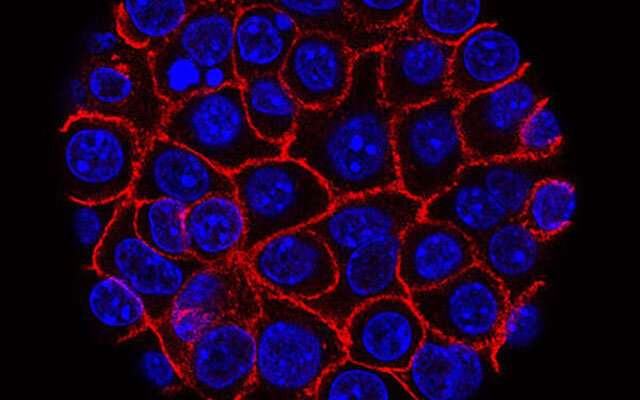Innovative Vaccines Show Promise in Combating Pancreatic Cancer in Preclinical Studies

New vaccine therapies targeting pancreatic cancer show promising results in preclinical studies, offering hope for more effective treatments or prevention methods against this deadly disease.
Pancreatic cancer remains one of the deadliest cancers, with a five-year survival rate of only 13%, largely due to its silent progression and advanced diagnosis. Current treatments such as surgery, radiation, and chemotherapy are only able to extend survival temporarily, with cures remaining rare. However, groundbreaking research from Case Western Reserve University and the Cleveland Clinic has unveiled a promising new approach — vaccines designed specifically to target pancreatic cancer, capable of potentially eradicating the disease altogether in preclinical models.
Researchers have developed vaccine nanoparticles that incorporate tumor-specific antigens—markers that help the immune system recognize and attack cancer cells. These nano-vaccines have demonstrated remarkable effectiveness in laboratory studies with models of pancreatic ductal adenocarcinoma (PDAC), the most common and aggressive form of pancreatic cancer. Notably, over half of the treated models became entirely cancer-free after vaccination, a revolutionary outcome unlike anything previously observed.
The team, led by biomedical engineer Zheng-Rong Lu and immunologist Li Lily Wang, engineered the vaccines using lipid-based nanoparticles that are well tolerated by the body and capable of delivering targeted antigens to stimulate an immune response. The vaccines focus on the most frequently mutated oncogenes involved in PDAC, aiming to train the immune system to recognize and destroy diverse tumor mutations. This approach enhances the potential impact across a broad spectrum of patients.
A significant aspect of this research involves combining the vaccine with immune checkpoint inhibitors—drugs that boost immune activity by preventing cancer cells from disabling immune cells. This combination could further improve treatment efficacy, offering a multi-faceted attack against pancreatic tumors.
Lu’s extensive experience with lipid-based nanoparticles underpins this innovative strategy, integrating decades of work into a new therapeutic avenue. The vaccine regimen involves three doses, and the goal is to not only treat existing tumors but also prevent cancer development in high-risk individuals carrying certain genetic mutations.
While these findings are preliminary and currently limited to preclinical models, the research team is optimistic about future clinical applications. Their next steps include further safety evaluations and collaborations with industry partners to prepare for human trials, with the hope of offering a groundbreaking new option for pancreatic cancer patients.
This development signifies a major advance in cancer immunotherapy and personalized medicine, potentially transforming the outlook for one of the most formidable cancers.
Stay Updated with Mia's Feed
Get the latest health & wellness insights delivered straight to your inbox.
Related Articles
New Insights into Vagus Nerve Cells as Shields Against Influenza-Induced Lung Damage
New research uncovers the protective role of vagus nerve cells in reducing lung inflammation during influenza infections, opening new avenues for immune-modulating therapies.
Single Dose RSV Vaccine Offers Protection Against Hospitalization in Older Adults Across Two Seasons
A single RSV vaccine dose has been proven to reduce hospitalizations and severe illness in adults aged 60 and older across two RSV seasons, according to new research in JAMA, highlighting the vaccine's significant public health impact.
RFK Jr. Questions Rising Autism Rates: Experts Caution About Oversimplified Explanations
Amid recent political discussions, experts highlight that broader diagnostic criteria and increased awareness largely explain rising autism rates, urging cautious interpretation and continued research.



